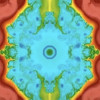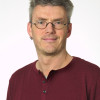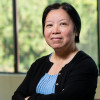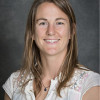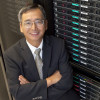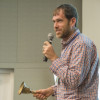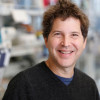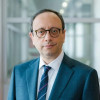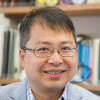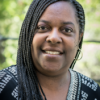NERSC 50th Anniversary
In 2024, NERSC celebrates its 50th anniversary, commemorating half a century of computational breakthroughs and supercharged science.
Over the course of 2024, the center will present seminars, activities, and special events to mark a half-century of scientific computing excellence. Some highlights include a 50th Anniversary seminar series, scientific visualization art contest for NERSC users, and a special edition of the annual NERSC Users Meeting in Berkeley, CA.
Legacy and Mission Grounded in Science
Founded in 1974 with a retired computer, NERSC has grown into a powerhouse of scientific productivity and high performance computing excellence, including affiliation with six Nobel prizes. We take pride in our unique heritage as we look forward to powering another 50 years of scientific discovery.
»Visit our interactive timeline for more NERSC history.
NERSC 50th Anniversary News
NERSC Science as Art Contest Deadline Extended
To help visualize the allure of 50 years of NERSC, you are invited to enter NERSC’s Science as Art competition. Read More »
Julian Borrill Talks Cosmology at NERSC in Upcoming Seminar
Find out about NERSC’s role in cosmological research and big data as Berkeley Lab Physics Division scientist gives his talk “Big Bang, Big Data, Big Iron: 50 Years of Cosmic Microwave Background Studies at NERSC,” part of the NERSC@50 anniversary seminar series. Join the seminar on Monday, August 5 at 1:30 p.m. PDT on Zoom. Read More »
Ruby Leung to Highlight NERSC's Role in Climate Modeling
Modeling is a key tool for understanding climate change, and the computational power provided by NERSC systems has made many researchers’ climate models possible. One of those researchers, Ruby Leung of Pacific Northwest National Laboratory (PNNL), will discuss her work on Earth system modeling and the role NERSC plays in it, as part of the NERSC@50 seminar series. Her presentation will take place Monday, July 29, at 1:30 p.m. on Zoom. Read More »
Kjiersten Fagnan to Report on Vibrant JGI-NERSC Collaboration
Tune in Monday, July 22 at 1:30 p.m. PDT on Zoom to learn about NERSC's vibrant collaboration with JGI—past successes, scientific discoveries, and the path forward—with JGI Chief Informatics Officer Kjiersten Fagnan. Read More »
CS Chang to Speak on State of Fusion Research at NERSC
NERSC was founded in 1974 to support nuclear fusion research – and on June 24, the NERSC@50 seminar series returns to those roots as Princeton Plasma Physics Laboratory researcher CS Chang presents on his work and the state of fusion research at NERSC. Read More »
Dula Parkinson to Present on ALS and Superfacility for NERSC@50
The NERSC@50 seminar series continues on June 17 with Dula Parkinson, the Program Lead for Diffraction and Imaging at the Advanced Light Source (ALS) at Lawrence Berkeley National Laboratory and a proud NERSC user since 2010. The seminar, in honor of NERSC’s 50th anniversary, will take place at 1:30 p.m. PDT on Zoom. Read More »
David Baker Talks Protein Design on June 3
The NERSC@50 seminar series welcomes David Baker of the Institute for Protein Design at the University of Washington. Join us for his presentation on prediction and design of protein interactions and how he’s using NERSC resources in his work to solve some of humanity's pressing problems. Read More »
Manos Mavrikakis to Deliver May 20 NERSC@50 Seminar
The NERSC@50 seminar series celebrating NERSC’s 50th anniversary continues Monday, May 20 at 1:00 p.m. on Zoom, with Manos Mavrikakis of the University of Wisconsin-Madison discussing reaction-driven formation of novel active sites on catalytic surfaces. Read More »
NERSC@50 Seminar Series Kicks off April 15
Join us for the NERSC@50 seminar series, a special collection of talks reflecting on the legacy and future of NERSC as we celebrate 50 years of supporting scientific discovery. Read More »
A Problem Solver and Forward Thinker: Jackie Scoggins reflects on time at NERSC
Former NERSC systems analyst Jackie Scoggins reflects on her time at NERSC as part of In Their Own Words, a Q&A series celebrating NERSC's 50th anniversary. Read More »






